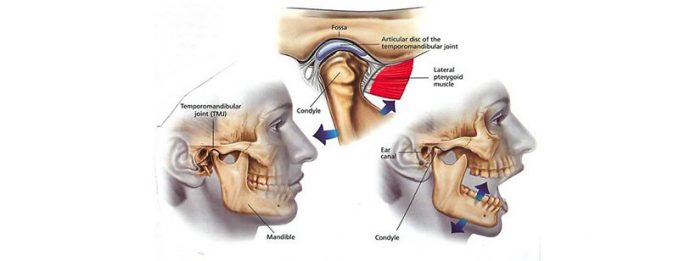The dentist is one of the few medical professionals you need to see more frequently for routine exams and checkups. Regular dental checkups, in this case, would help ensure that your gums and teeth are healthy.
Usually, you will need to visit the dentist every 6 months, but the visits may be more frequent if you’re dealing with a severe oral health issue. Dentists specialize in dental health, but they’re well-positioned to refer you to other medical professionals.
For example, your dentist may recommend a visit to an ENT clinic if they notice medical issues that an Ear, Nose, and Throat (ENT) specialist is well placed to address.

Therefore, it shouldn’t come as a surprise when your dentist recommends that you see an ENT. Through the scans and X-rays the dentist takes of your face during a medical exam, they may also notice other alarming issues of your nose, base of the skull, and other head or head regions that would require the knowledge and understanding of the ENT specialist to address.
What Conditions Does the ENT Specialist Treat?
To understand the conditions that would make your dentist recommend a visit to an ENT clinic, it is imperative that we lay a foundation on why the dentist may recommend the appointments. Now, the dentist only trains and gets licensed to help with oral health issues.
If you don’t know which clinic to turn to, you can see more details on this website about an ENT clinic and how they can help you.
However, there are cases where they use the same tools used by ENTs but for different purposes. For example, the dental X-ray can help your dentist get detailed images of sections of your mouth, nasal area, and sinuses.
From these images, they may detect abnormalities or symptoms, for example, solid growths, cysts, and infections, which another specialty doctor, and in this case, an ENT specialist, can address. With that in mind, here’s a quick summary of some of the conditions your dentist may detect and recommend a visit to an ENT clinic for a detailed exam or specialized care.
-
Enlarged Tonsils and Adenoids

There are several reasons why your tonsils and adenoids may get enlarged. In most cases, factors like smoking, parasitic infections, and exposure to viruses, fungi, and bacteria are the usual culprits.
It isn’t always necessary to remove adenoids and tonsils unless they get frequently infected or excessively enlarged. Removal of enlarged tonsils and adenoids would be necessary to improve breathing and reduce the number of throat and ear infections.
You will need to visit your ENT clinic for this operation. Therefore, if the dentist notices the enlarged adenoids or tonsils during the dental exams, especially in a child, they’re more likely to recommend a visit to an otolaryngologist since they may be caused by several cold viruses.
If you constantly breathe with your nose or constantly speak with a nasal voice, they may also recommend that you book a consultation with a board-certified ENT specialist. If your dentist detects tonsils in your child during an oral exam, it is prudent that you have the child visit an ENT clinic for proper assessment. Chances are there the tonsils may interfere with the child’s normal jaw and facial development.
-
Sinus Issues

One of the common oral issues that would warrant a visit to your dentist is bad breath. During the appointment, one of the primary issues they’d usually check for if you’re concerned about bad breath is tooth decay, as it is also mostly manifested through bad breath.
Besides tooth decay, the dentist would also check for gum disease as it is also a common cause of bad breath. If the multiple assessments don’t catch either gum disease or tooth decay, the dentist may suggest a visit to an ENT clinic to check for sinus issues.
Sinus and related respiratory infections could impact your breath, making it smell like feces. Therefore, a detailed exam by a board-certified ENT specialist could help unravel your miseries, get them treated, so you also get to live a normal life.
Other than the bad breath, sinus issues could also manifest themselves in the form of jaw pains. This is relatable since the sinus cavities are located very close to your top teeth roots, making sinus pressure pain feel like it’s your tooth that’s hurting. If the dental exams reveal that gum pain has nothing to do with your teeth or gums, the dentist will most likely suggest that you see an ENT specialist get you checked for sinus issues.
-
Temporomandibular Joint (TMJ) Disorder

Temporomandibular Joint (TMJ) disorder is a disorder that causes pain in the jaw joints in the muscles controlling your jaw movements. Now, if you also experience what feels like joint pain but the dentist doesn’t detect any probable cause of the pain, chances are high you could be dealing with TMJ disorder.
The dentist may suggest a visit to an ENT clinic for MRI, or CT scans to have you assessed for any joint or problem issues. Now, the ENT can only diagnose your TMJ disorder and treat only minor cases of this condition. For complicated cases that require surgery, you may need to work with a board-certified oral surgeon.
Can you Visit an ENT Clinic without Referral?
You can always visit an ENT clinic without a referral. This would particularly be necessary if you’re dealing with a medical emergency issue, for example, an accident that affected your nasal structures, and you need emergency surgery to save a life or to repair the problem at its earliest stages when it can still be controlled. There are, however, isolated cases where a referral is necessary.
For example, you may need a referral from either your primary doctor or another specialist doctor for example a dentist if you want your treatment costs to be covered by insurance. Depending on your insurance provider, they may insist that you have a referral from a recognized medical practitioner for you to be approved for these claims. Therefore, be sure to always understand your provider’s terms.

Dentists also refer patients to ENT specialists and they’d mostly do so when necessary.









